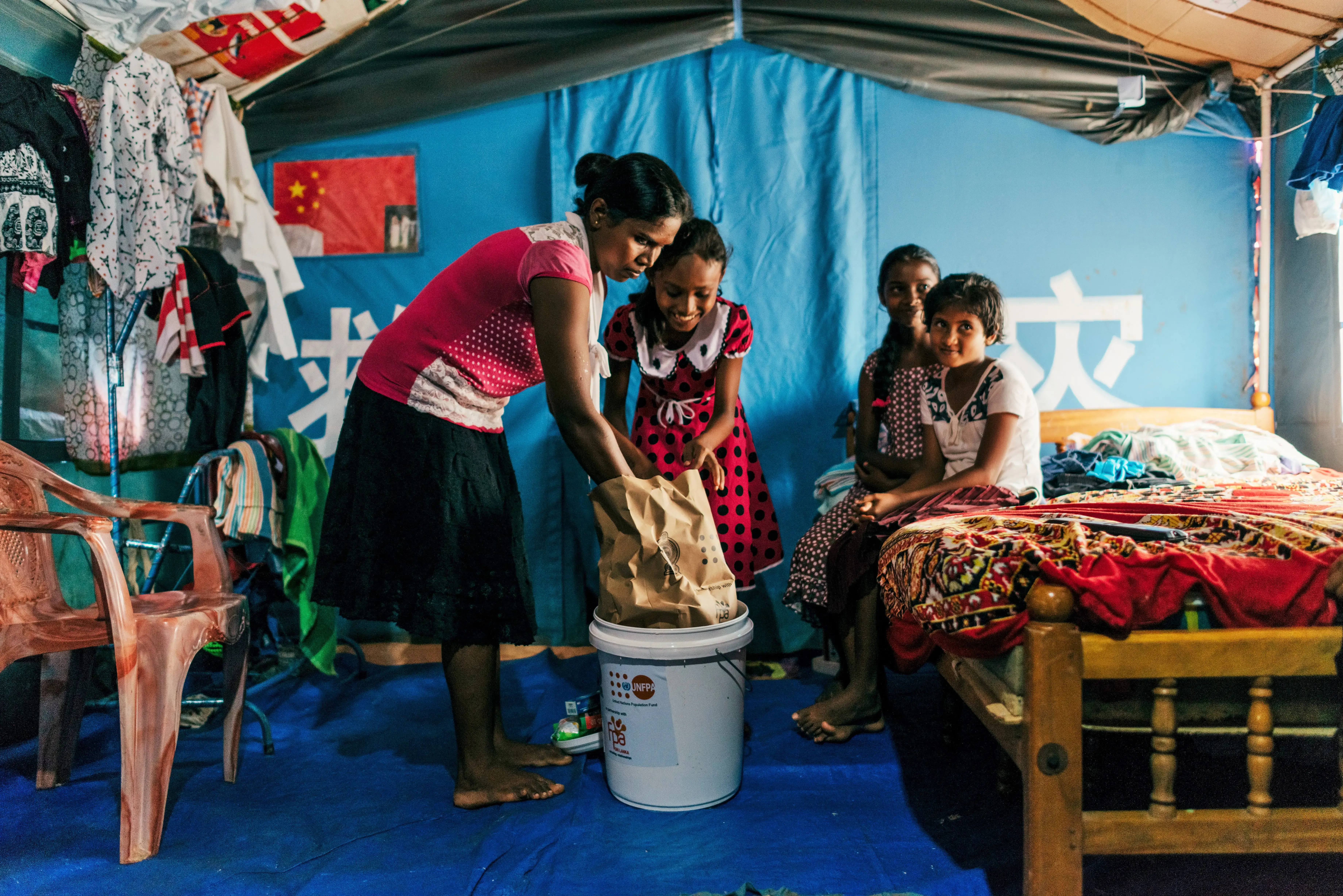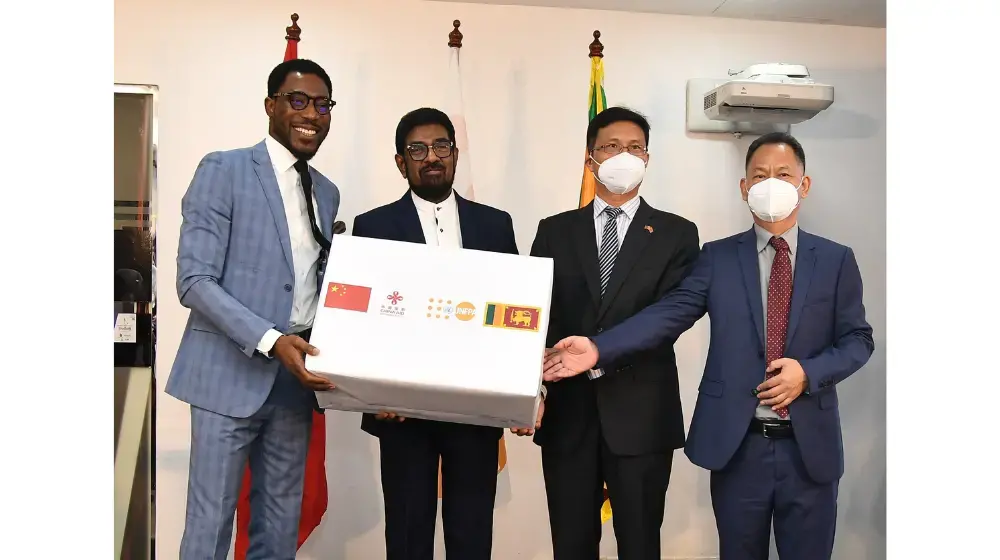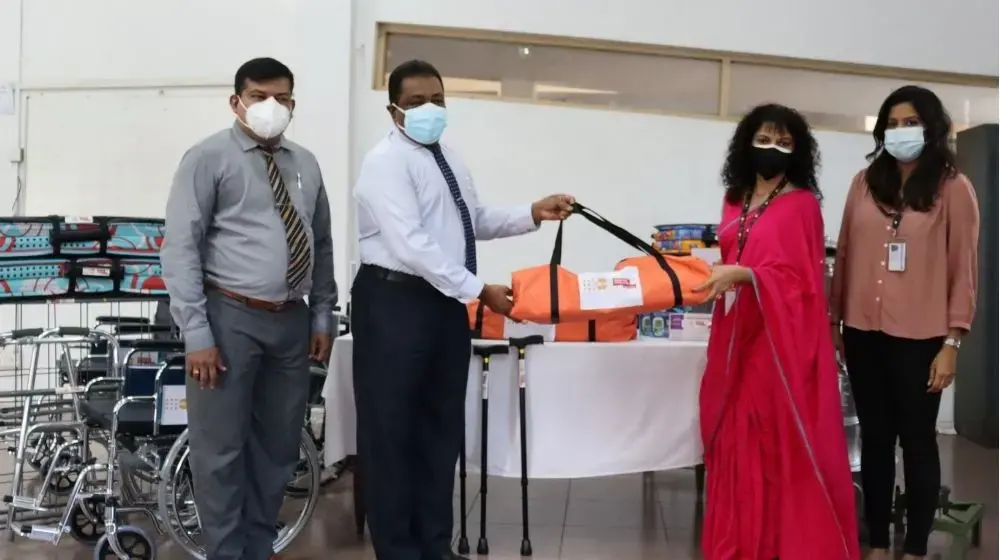During conflicts, natural disasters and public health emergencies, sexual and reproductive health needs are often overlooked – with staggering consequences. Pregnant women risk life-threatening complications without access to delivery and emergency obstetric care services. Women and girls may lose access to family planning services, exposing them to unintended pregnancy in perilous conditions. Women and girls also become more vulnerable to sexual violence, exploitation and HIV infection.
UNFPA is on the ground before, during and after crises, working closely with governments, local NGOs and other partners to ensure that sexual reproductive health and rights and responses to gender-based violence are integrated into emergency responses. During the COVID-19 pandemic, UNFPA has worked closely with key ministries and departments to support health systems that were under pressure to better respond to the needs of women and girls, and other vulnerable groups.
UNFPA’s trademark hygiene and dignity kits are generally designed to help maintain the basic hygiene of any woman of reproductive age during emergency situations, such as COVID-19 or any other crises. SInce the onset of pandemic COVID-19 in Sri Lanka UNFPA , in partnership with the Disaster Management Centre and other humanitarian organizations, has distributed over 11,000 tailored kits to women and girls of reproductive age so they can continue to maintain their health and hygiene.
We're also working with key partners to ensure shelters - run by namely Women in Need, the Women’s Development Centre, Akhasa, Women in Need and the Jaffna Social Action Centre - are up and running so survivors of violence can continue to receive the support they require; the vulnerable continue to have access to basic sexual and reproductive health services, and expectant mothers have continued access to lifesaving essential services even in the midst of a crisis.





